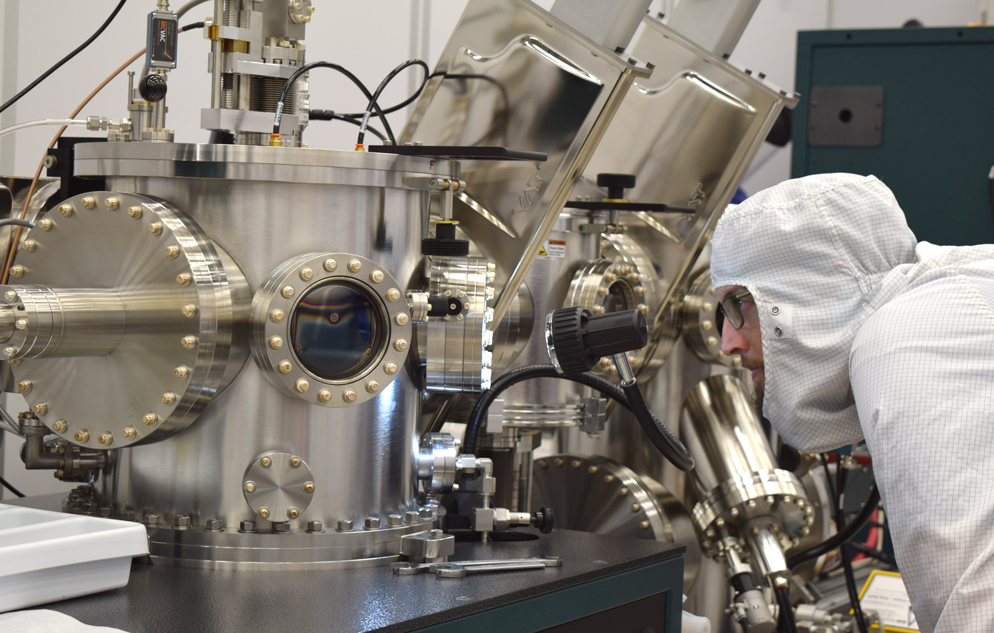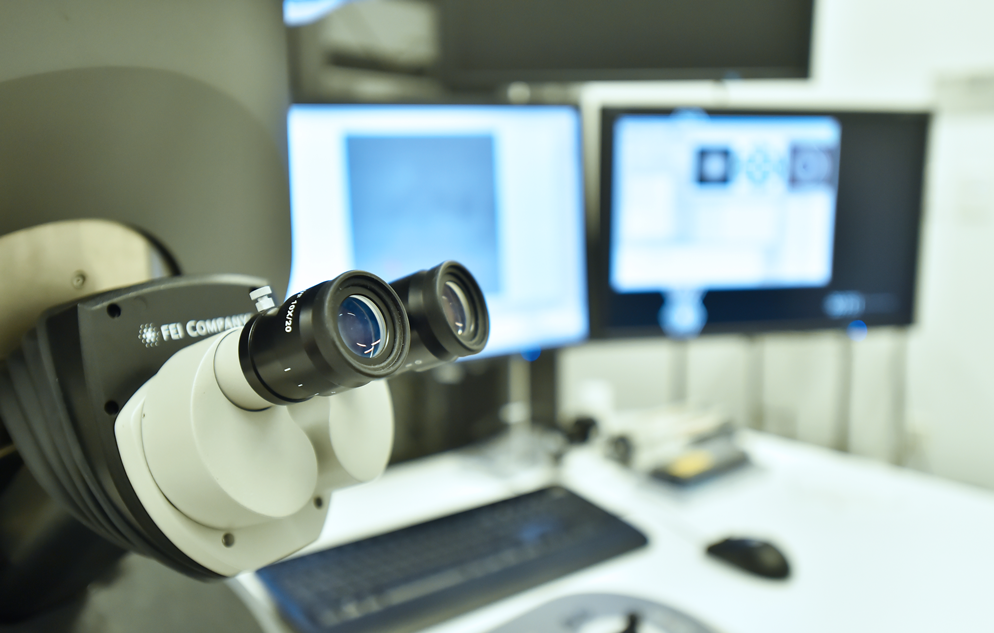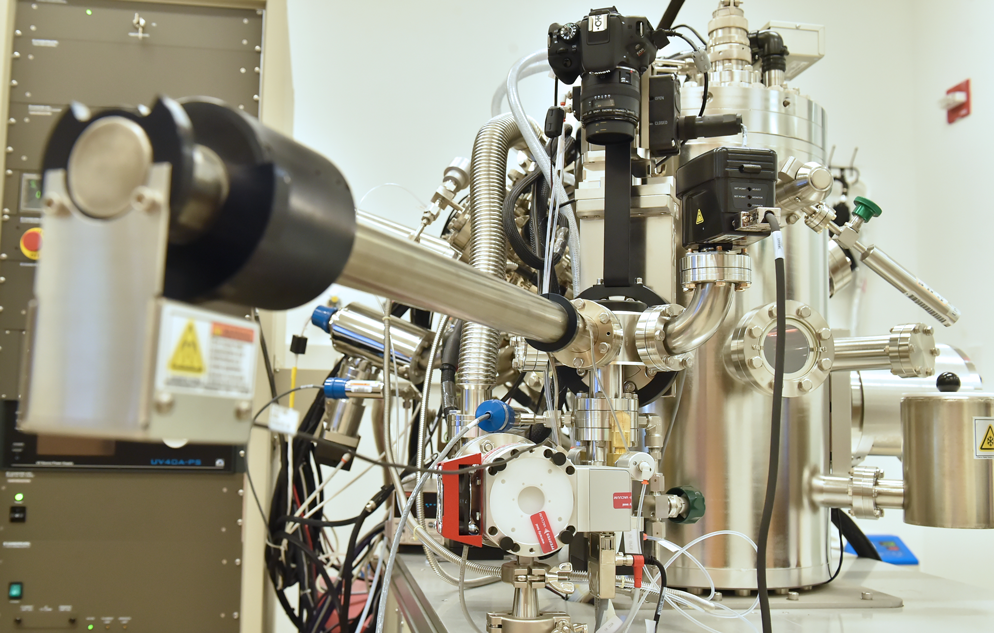- COVID-19 Update: Current Status - Last Updated April 27, 2022
Please review our current ASRC COVID-19 Public Health and Safety Policies for up-to-date information on COVID-19 safety, allowable activities, and visitor information.
The Nanoscience Initiative operates a number of labs within the ASRC, spread across the ground and first floors. The laboratories are purpose built for advanced research and house a number of state of art equipment. In addition, The Nanoscience Initiative has access to a number of core facilities suites that contain high specification instrumentation. All of these facilities are accessible by CUNY faculty, research staff, students and collaborators.

The Nanofabrication Facility hosts a comprehensive toolset to develop micro- and nanoscale devices, such as integrated circuits, nanophotonic and solid state devices, micro- electromechanical systems, and microfluidic systems. In addition to offering sophisticated instrumentation for device fabrication, the facility maintains several material characterization tools and back-end equipment for device prototyping.
The facility comprises 5,000 ft2 of class 100, 1,000 and 10,000 cleanroom space. Major instrumentation includes: a 100 kV high-resolution e-beam lithography system; a field emission scanning electron microscope (SEM); chlorine and fluorine based inductively coupled plasma etchers; and metal and dielectric deposition systems.

The Imaging Facility currently hosts cutting-edge microscopy instrumentation including transmission electron microscopes with cryo capabilities (cryoTEM, S/TEM), as well as a scanning electron microscope with focused ion beam functionality (SEM/FIB) and a super-resolution confocal stimulated emission depletion microscope (STED).
The facility allows for advanced imaging of materials and biological samples, including semi-automated data collection for single particle 3D reconstruction, chemical mapping by energy-dispersive x-ray spectroscopy (EDX), live cell imaging, and advanced FIB applications.

The Surface Science Facility offers access and services to state-of-the-art surface analysis instrumentation including X-ray photoelectron spectroscopy (XPS), time-of-flight secondary ion mass spectrometry (TOF-SIMS), atomic force microscopy (AFM), and thermochemical nanolithography (TCNL).
With a range of sample preparation chambers, hardware configurations, and in-house expertise, researchers in the physical sciences have the capability to prepare and analyze a variety of different sample types, including immobilized biological, organic, inorganic, and mixed composition samples.
